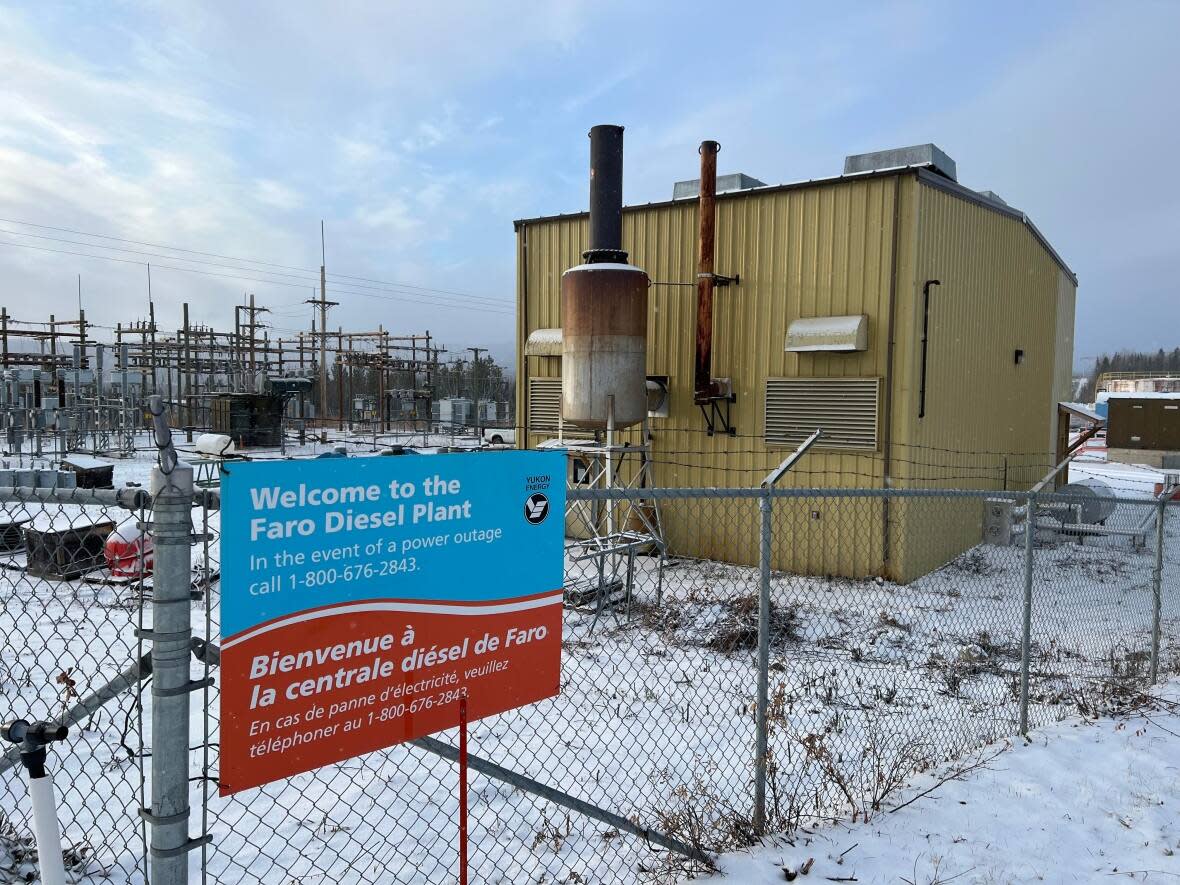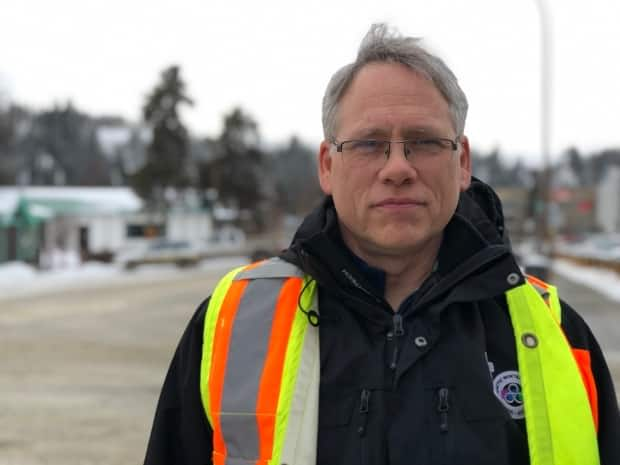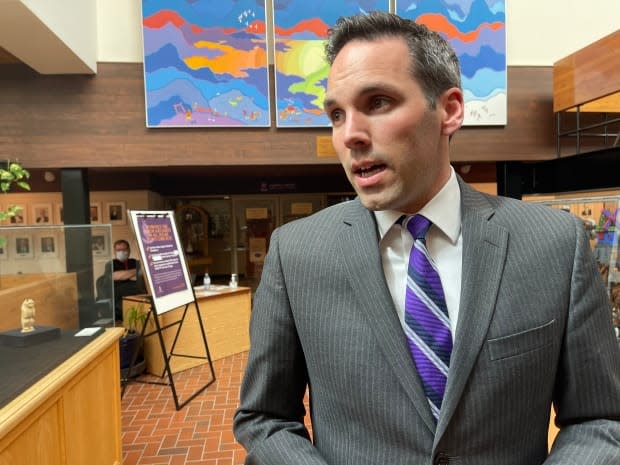Yukon Energy adding five more diesel generators

Yukon Energy Corporation will rent five additional diesel generators this fiscal year, bringing the total in the territory to 22.
John Streicker, the minister responsible for the corporation, confirmed the plans last week in the legislature.
The minister gave two reasons for the new rentals. Streicker said supply chain problems have delayed the corporation's replacement of two permanent generators in Faro, meaning rentals are needed until the replacements can be procured.
Streicker said the rentals are also needed because the required amount of backup power has increased. That backup power is at the ready should the Aishihik dam or transmission line to Whitehorse go offline.
The generators do not need to be in Faro, just located on the electrical grid. The plan is to place the generators in Mayo, near existing power infrastructure. That includes the Mayo A hydro plant and a substation with transformer capacity nearby.
"And where that station is, it's far away from residents, because you are always worried about sound and air quality. That is what the game plan is, but we are working through the process in order to get permits for that siting," Streicker said.
Putting the generators in Mayo will first require going through the Yukon Environmental and Socio-economic Assessment Board, and the utility is planning to send a proposal to the board, Streicker said, adding there is the "intention" to engage with the community.

Mayo Mayor Trevor Ellis had few details on the plan when reached on Friday. He said noise and traffic from fuel-hauling trucks could be issues but added the dams are about eight kilometres away.
However, Ellis said there are residents of a few homes in a new subdivision much closer to the dams who might have concerns.
"Yukon Energy's been a fairly good corporate neighbour here," he said. "I'm fairly confident that they would approach the village and the First Nation to ask [about] any concerns before they move ahead with it."
Yukon Party probes plan for renewables
News of the additional generators was unearthed during questioning by the Yukon Party opposition, which spent most of the week probing the government on the utility's renewable electricity plan.
That plan states the need for power is growing in the Yukon, with a gap between peak demand and dependable supply. Right now, the latter comes from sources like hydro, liquefied natural gas, diesel and thermal. The gap has been bridged by renting diesel generators.
In the coming years, the plan is to fill that gap with battery storage, buying power from the Atlin Hydro Expansion Project and the Moon Lake pumped storage project. Programs to get people conserving power would also help close the difference.

The Yukon Party has been skeptical about getting those projects across the finish line. Right now, a funding gap needs to be closed for the Atlin project to start construction, the battery project isn't expected until the summer of 2024 and finishing the Moon Lake project this decade is no guarantee.
Yukon Energy's plan states without those projects, it will have to rent more diesel generators to meet peak power demand — a warning Yukon Party Leader Currie Dixon has been eager to call attention to.
"The whole energy strategy is pinned on these projects coming online in a certain number of years. If they don't come online in a certain number of years, we need to rent diesels," Dixon said.
Grid tie-in back on the table
Streicker countered that renewables comprised 93 per cent of the Yukon's grid in the past year, despite rapid growth. He also pointed to renewable energy projects to come, including the Haeckel Hill Wind Project, solar projects in Beaver Creek and Old Crow, and a wind project in Kluane.
He contended the government does have a Plan B — a connection to British Columbia's electrical grid.
The government ruled out the idea back in 2019, but Streicker said a few changes have put it back on the table. Some of those include new interest from BC Hydro and the BC Government, and BC Hydro twinning its transmission line from Prince George to Terrace, which would lend itself to a tie-in.
However, Streicker acknowledged that a grid connection would be at least a decade away and would cost billions. To pay for it, he proposed convincing the federal government it would be a "nation-building" project. First Nations would also be asked if they would want to own the transmission line.
Streicker said as the mines are called to meet a growing demand for critical minerals, they would be willing to contribute as well.
"They would rather pay a price there than a price on carbon," he said. "We heard loud and clear that the mining sector is interested in seeing us doing a grid connect when we were down at Roundup. They are keen on this conversation for sure."


